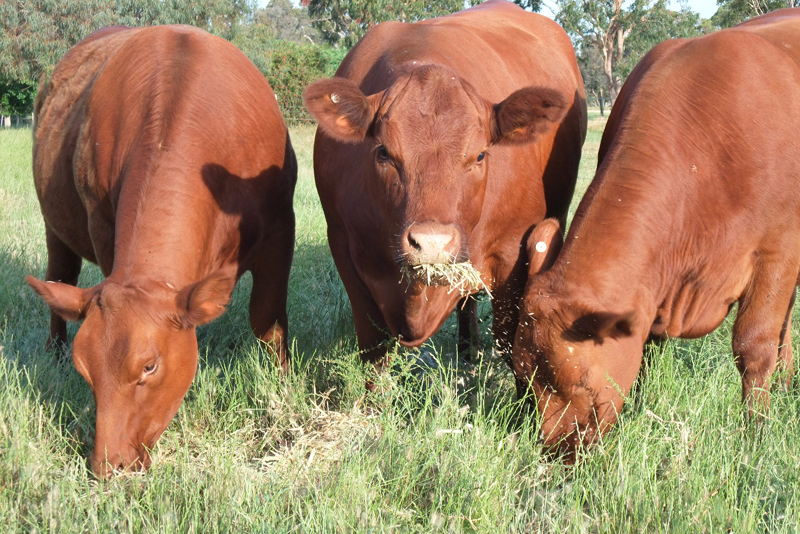GENETIC CONDITIONS
Genetic conditions are caused by an abnormality in an individual’s DNA. Through DNA testing, most genetic conditions can be managed through eradication of known carriers or relatives. Currently, the Red Angus Society of Australia manages several genetic conditions, these include:
- Osteopetrosis (OS): calves are born prematurely, typically born dead or if born alive will die within 24 hours. Calves have a short lower jaw, impacted molars and long, fragile bones.
- Alpha Mannosidosis (MA): affected calves may show no signs of physical deformities. However, prior to reaching sexual maturity animals will show severe neurological disease with loss of muscles coordination. The affected animal will eventually die.
- Arthogryposis Multiplex (AM): affected calves have a bent and twisted spine. Calves are small, thin, limited muscle development and rigid limbs. Can cause calving difficulties.
- Neuropathic Hydrocephalus (NH): calves are born with low birth weights. The cranium is large filled with fluid and no brain tissue present. The spinal canal is also dilated with no spinal tissue.
- Myostatin (MSTN): myostatin is essential for proper regulation of skeletal muscle mass. Mutations of this gene will result in variations from normal phenotypes such as muscle hyperplasia and muscle hypertrophy (known as double muscling gene). The common strain found in Angus breeds is NT821. Carriers will have reduced eating quality, due to higher muscling (and therefore minimal intramuscular fat), may have low fertility and calving difficulties due to larger birth weights.
The Red Angus Society offers a test bundle that includes GGP-LD100K, parentage, MSTN, NH, OS and MA. (AM must be additionally requested).
The Society also offers parentage testing, BDVD (bovine viral diarrhoea virus/pestivirus) and coat colour. However, BDVD cannot be requested on its own.
All genetic test results are based on samples provided to the Society by breeders. To test your animals for genetic conditions, please complete the DNA application form along with a clean sample from the animal. The sample can either be provided in a TSU, hair, blood or semen. It is important that the sample is received at the Red Angus office, clearly labelled, stored correctly and free from any foreign material. The Society currently has a bundle offer for genetic testing, which is beneficial for breeders to use.



